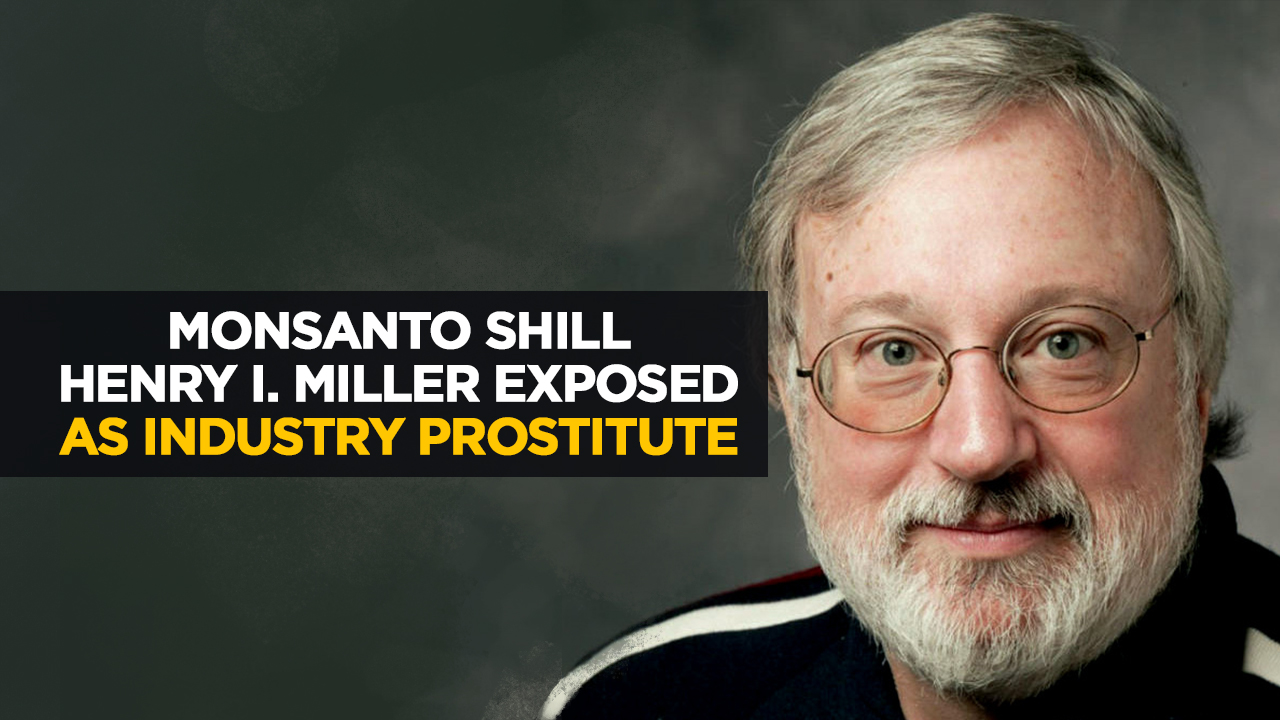Newsweek pushes Monsanto propagandist lies authored by scandal-ridden organic hater Henry I. Miller
02/05/2018 / By Ethan Huff

Yet another mainstream news outlet, Newsweek, has decided to shamelessly spread fake news that bashes organics and promotes GMOs (genetically-modified organisms). And wouldn’t you guess it, but the stated author of this ridiculous hit piece is none other than Hoover Institution hack Henry I. Miller, who’s been caught on numerous occasions attaching his name to ghostwritten Monsanto propaganda and pretending it’s his own.
As reported by EcoWatch.com, Miller’s latest article in Newsweek is filled with a litany of the usual lies, including claims that organic food is somehow “bad for the environment,” and that GMOs and Roundup (glyphosate) are God’s gifts to mankind. And just like with many other Miller pieces, the content of his Newsweek article is curiously identical to Monsanto’s official corporate talking points, many of which have been exposed as part of the famous Monsanto Papers release and other similar revelations.
EcoWatch‘s Stacy Malkan explains how Miller has a really cozy relationship with Monsanto, which appears to be paying this sellout cash to slap his name on their disinformation. Similar findings are covered at TruthWiki.org, revealing how Miller has been whoring himself to Monsanto and other biotechnology interests for many decades.
“Miller’s Newsweek hit on organic food has Monsanto’s fingerprints in plain sight all over it,” writes Malkan. “For starters, Miller uses pesticide industry sources to make unsubstantiated (and ludicrous) claims about organic agriculture – for example, that organic farming is ‘actually more harmful to the environment’ than conventional agriculture, or that organic allies spent $2.5 billion in a year campaigning against genetically engineered foods in North America.”

Miller’s Newsweek article tied to Monsanto corporate front group ‘Academics Review’
Just to be clear, Miller has an extensive history of pretending to be an “independent” voice on biotechnology. He’s been caught publishing Monsanto-authored propaganda in Forbes, The Wall Street Journal (WSJ), and various other publications that, at one time, were considered to be reputable.
And once again, there are clear signs that Miller is performing his usual act in Newsweek, regurgitating the anti-organic talking points of the corporate front group “Academics Review.” As pointed out by Malkan, a report published by Academics Review that attacks the organic industry and accuses it of being a “marketing scam” is suspiciously interchangeable with Miller’s Newsweek article.
By all appearances, Miller was once again handed a “high-quality draft” of what Monsanto wanted to see published by a major media outlet, to which he likely made a few changes before publishing it under his name. Monsanto isn’t mentioned anywhere, of course, and anyone unfamiliar with Miller’s biotech ties will likely read it as his own “educated” opinions on the matter – a win-win for both Monsanto and Miller.
Except for this one major elephant in the room: Miller’s reputation as a corporate scam artist is quickly reaching a tipping point. There’s no hiding his financial ties to Big Biotech anymore, especially when email exchanges between Monsanto executives openly reveal that the key to the company’s success is to keep the company “in the background so as not to harm the credibility of the information” – information that people like Miller are all too willing to spread in exchange for cash.
“Monsanto relies heavily on people with scientific credentials or neutral-sounding groups to make those arguments – people who are willing to communicate the company script, while claiming to be independent actors,” adds Malkan.
“As more documents tumble into the public realm – via the Monsanto Papers and public records investigations – the ‘independent academic’ ruse will become harder to maintain for industry PR writers such as Henry I. Miller, and for editors, journalists and policy makers to ignore.”
To keep up with the latest news on Monsanto’s shady marketing tactics, visit Monsanto.news.
Sources for this article include:
Submit a correction >>
Tagged Under:
Academics Review, chemical agriculture, corporate misinformation, corruption, decption, fake news, food supply, front group, glyphosate, GMO, GMOs, Henry I. Miller, Journalism, lies, Monsanto, Monsanto Mafia, Newsweek, organics, propaganda, Roundup
This article may contain statements that reflect the opinion of the author





















